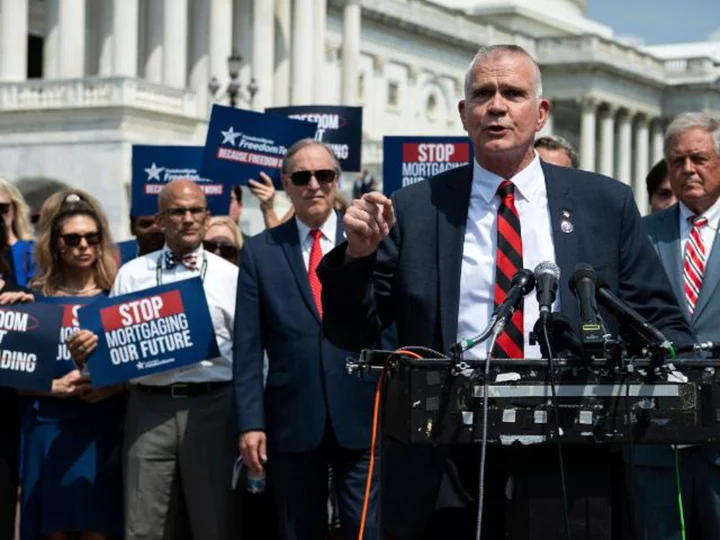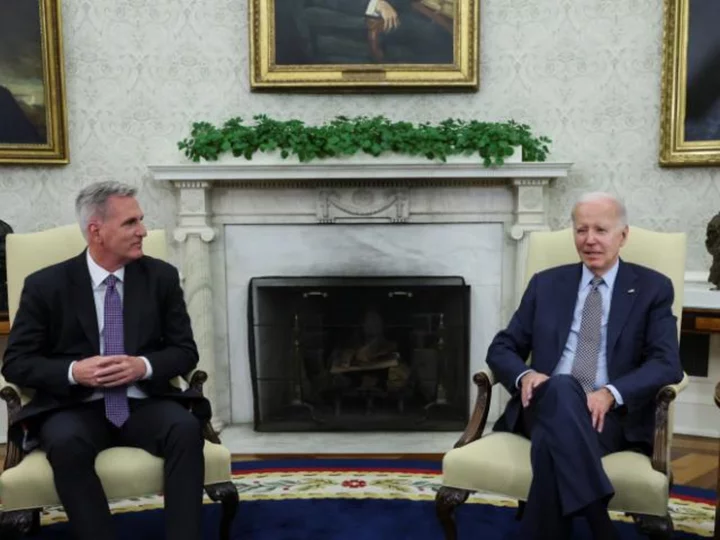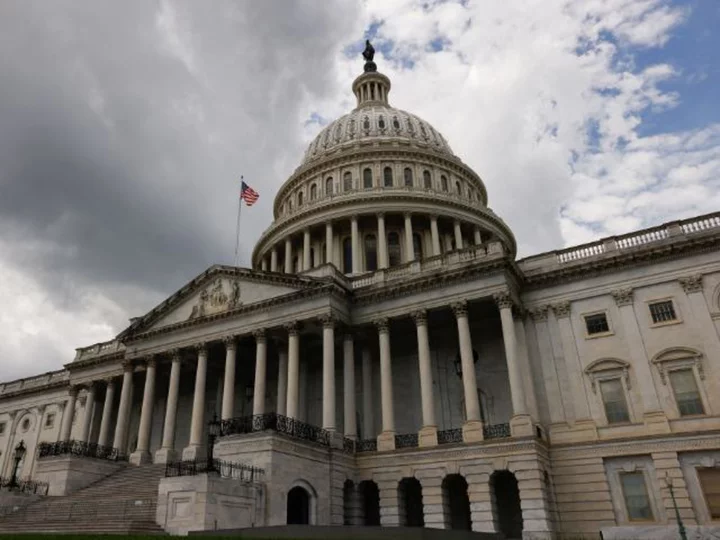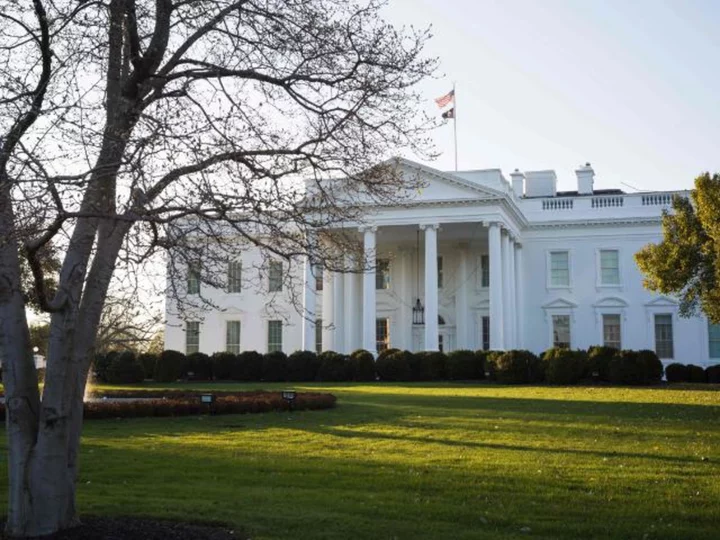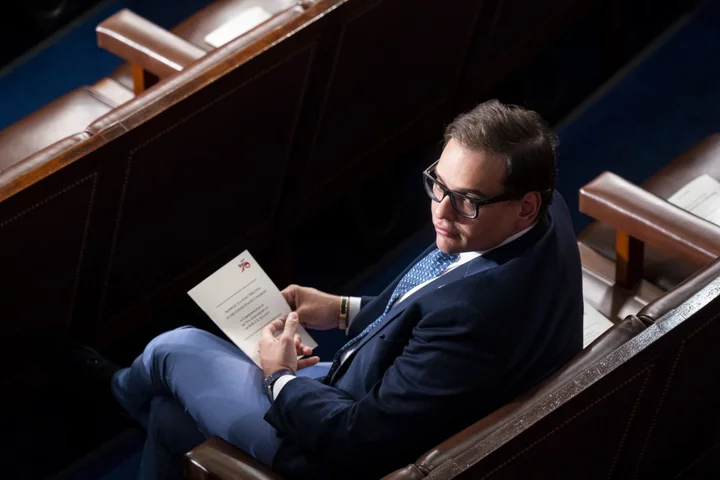House Republicans are bracing for a bruising showdown with the White House and the US Senate this fall as House Speaker Kevin McCarthy once again will have to decide how far he's willing to go to assuage the demands of the far right members in his ranks.
On Tuesday, the House Freedom Caucus sent a clear signal that they must see all 12 appropriations bills totaled up and fired a warning shot to leadership to hold firm on the agreements made in an earlier deal to avoid government debt default.
"We want to see all 12 of the appropriations bills," Freedom Caucus member Matt Rosendale, a Montana Republican, told reporters. "We want leadership to uphold their end of the deal."
He added, "If leadership believes they are going to trickle these out two at a time, three a week, four a week, that is just not going to be feasible because we will never be able to see what the total spending is until the very end. And then when we then try to uphold our commitment, our word to the American people that we will not push spending beyond the 1.471 (trillion dollars) for non-defense discretionary."
If lawmakers can't reach a deal, it could lead to a shut down or a longer term stop gap measure that would just fund the federal government at the same levels it's been at throughout the year. But, a stopgap measure is still a gamble. That's because a provision in the bill to raise the debt ceiling in June would automatically inject a 1% cut if lawmakers fail to pass and sign into law all 12 appropriations bills. A stopgap measure would be subject to that cut, which would go into effect in April.
Rep. Andy Biggs, a Republican from Arizona, predicted there will not be a government shutdown, however.
"The House is gonna say no, we're gonna pass a good Republican bill out of the House and force the Senate and the White House to accept it, or we're not going to move forward," he said. "What would happen if Republicans for once stared down the Democrats and were the ones who refuse to cave and to betray the American people and the trust they put in us when they gave the majority? So we don't fear a government shutdown."
Rep. Bob Good, a Virginia Republican, instead said the House should leverage a shutdown into getting their priorities and "stare down" the Democrats. He pointed to the failure, in their view, of the Fiscal Responsibility Act and that the appropriations process was promised as a potential avenue to get their priorities through.
"It was said by leadership at that time that we will use the appropriations process that the FRA was the ceiling, not the floor. That we would go back to pre-Covid level spending for non-defense discretionary (spending) and we're calling on Republicans to do that very thing," he said.
The House is scheduled to begin consideration of two of the 12 spending bills this week with votes expected as soon as Wednesday on a bill to fund military construction and veterans' affairs and another bill funding agriculture programs and rural development expected to receive a vote later in the week. The votes will test the GOP leadership's ability to unite the conference and win over the votes of conservatives, some of whom have never voted for the spending bills in the past.
Yet even if House Republicans manage to pass two of their spending bills with a narrow margin, they'll have 10 more to consider and just weeks to do so when they return in September before the funding deadline. One of McCarthy's promises to his conference in January to secure the speakership was that he would move all 12 spending bills through so-called regular order.
But getting the bills out of the House is just the first hurdle.
House and Senate appropriators have been working through their bills with little coordination. The House is moving their bills at lower levels than what was agreed to as part of the debt ceiling deal McCarthy struck with the White House in May. Meanwhile, Senate appropriators agreed to inject an additional $13 billion in emergency spending to boost defense and non-defense spending last week increasing the gap between the two sides even further.
It's a messy fight that could take time to sort out in a conference committee assuming House Republicans can remain united enough to get all of their bills through the House before the October 1 deadline. Senate and House leaders could move a short-term spending bill, which is looking more likely, in order to ensure that the House and Senate have time to work out their differences.
But even if House and Senate appropriators can cut a deal in the middle, McCarthy's right flank is already warning that McCarthy could face backlash if he brings a bill to the floor that has higher spending levels than what the House hardliners are looking for.

